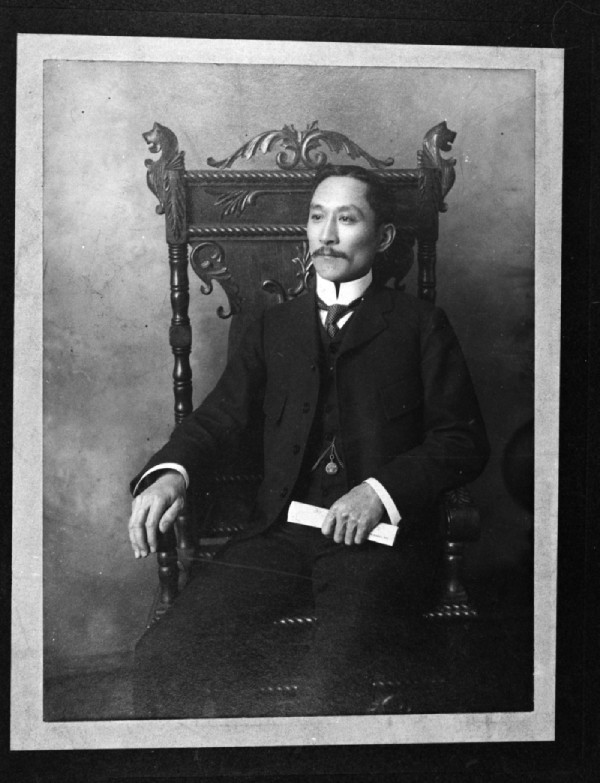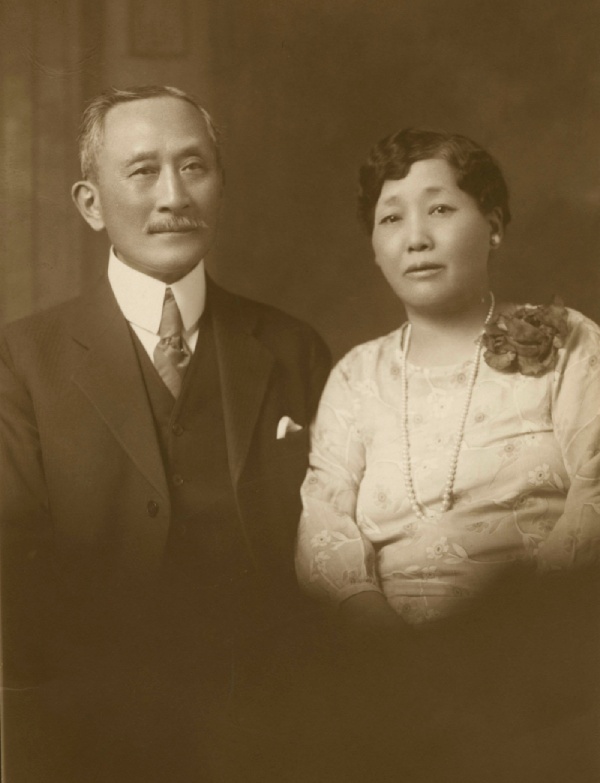Won Alexander Cumyow National Historic Person (1861–1955)

© City of Vancouver Archives / Public domain
Won Alexander Cumyow was designated as a national historic person in 2024.
Historical importance: the first known person of Chinese descent born in Canada who fought all his adult life for democratic rights and an end to the raced-based franchise.
Commemorative plaque: no plaque installedFootnote 1
Won Alexander Cumyow
Born in 1861 at Port (Fort) Douglas in the colony of British Columbia, Won Alexander Cumyow was the first known person of Chinese descent to be born in what would become Canada. This was at a time when there were few Chinese women in the general population. However, he was barred from voting and the legal profession due to discriminatory laws. As a community broker and court interpreter in the justice system, he championed the rights of persons of Chinese origin and descent in Canada in the early 20th century. He fought to end racist voting laws, and in 1949, two years after Chinese Canadians were granted the vote in British Columbia, he cast his vote. Cumyow also helped his community as an organizer and activist who in 1884 co-founded the Chinese Consolidated Benevolent Association in Victoria, later served as president of the Vancouver Chinese Benevolent Association, and in the 1920s fought to end school segregation in Victoria, British Columbia.
Cumyow’s father, Won Ling Ling, and mother, Wong Shee, left the Hakka community of South China and immigrated first to California, in the United States, and then to the colony of British Columbia in 1860. In Port Douglas, his family owned and operated a store to provide materials and supplies to miners and locals during the Cariboo Gold Rush. His parents named him Cumyow, which means “gold have.”

© City of Vancouver Archives / Cumyow Family Collection / Public domain
Cumyow and his family moved to New Westminster in the early 1870s, where he spent his childhood, completed high school, and mastered several languages, including Hakka, Cantonese, English, and Chinook, a trade language. In 1883, he moved to Victoria, which had the largest Chinese community in Canada. There, he became a founding leader and secretary for the Chinese Consolidated Benevolent Association, an umbrella organization formed to combat increasing anti-Chinese racism and legislation. He was often the voice of the association in the fight for voting rights and more open immigration policies. In 1872, British Columbia barred Chinese Canadian and Indigenous men from the provincial vote (no women could vote). In 1885, Chinese Canadians were barred from the federal vote. Also, in 1885, the Chinese Immigration Act came into effect, restricting the entry of Chinese immigrants through measures such as the head tax.
Hoping to become a lawyer, Cumyow moved to Vancouver in the 1880s. Despite articling with two law firms, he was barred from the legal profession. However, from 1889 to 1936, he was employed by the city’s police department as a translator and court interpreter for the Chinese community, some First Nations people, and other racialized communities. During this time, he also worked as a labour contractor, importer, and entrepreneur. He married Ye Eva Chan, and the couple eventually had ten children. In 1922, Cumyow was a spokesperson for the Chinese community’s fight against school segregation in Victoria.
Throughout his life, Cumyow served as a community activist and was often called upon to take leadership, speaking or translator roles in Chinese Canadian and Asian Canadian activities to fight racism. In 1949, at the age of 88 and two years after the vote was reinstated, Cumyow voted in the federal election. He was one of the first Chinese Canadians to cast a vote in Canada. Won Alexander Cumyow died in 1955 in Vancouver.
“I can't think of a more appropriate person than Won Alexander Cumyow for this honour. As an iconic figure in Canadian history, he exemplifies the perseverance and resilience of Chinese Canadian pioneers. For over three decades, he dedicated himself to his community from his office in Vancouver's Chinatown, utilizing his legal and linguistic skills to help them establish themselves. On a national level, he was a powerful advocate for equal rights, playing a crucial role in shaping the inclusive country we are privileged to call home."
This press backgrounder was prepared at the time of the Ministerial announcement in 2024.
The National Program of Historical Commemoration relies on the participation of Canadians in the identification of places, events and persons of national historic significance. Any member of the public can nominate a topic for consideration by the Historic Sites and Monuments Board of Canada.
- Date modified :